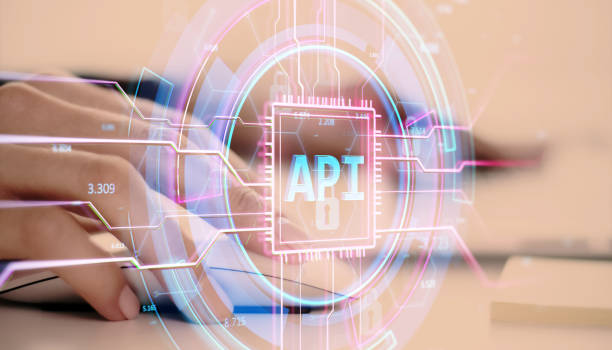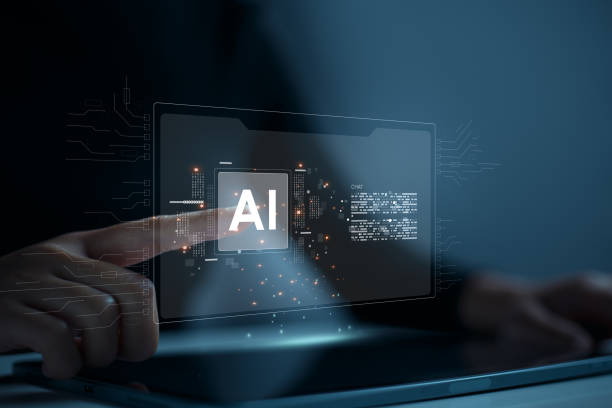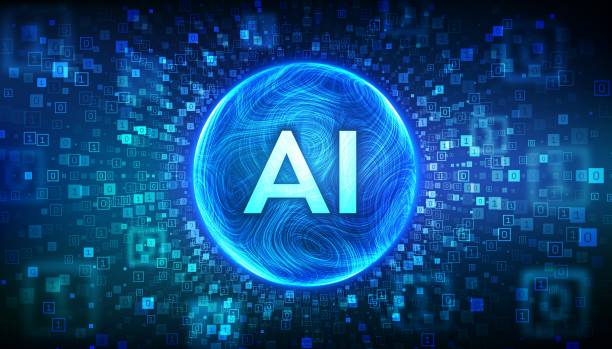What is Artificial Intelligence: Definitions and Key Concepts

#Artificial_Intelligence (AI) is a branch of computer science that deals with building machines and systems capable of performing tasks that typically require human intelligence.
These tasks include learning, reasoning, problem-solving, natural language understanding, and pattern recognition.
In other words, the main goal of artificial intelligence is to create systems that can think, learn, and act as humans do.
There are various definitions for artificial intelligence, but one of the most common defines AI as «the ability of a system to correctly interpret external data, learn from this data, and use the acquired knowledge to achieve specific goals.»
This definition emphasizes three key elements: data collection, learning, and intelligent decision-making.
Artificial intelligence is not a single discipline, but rather a collection of different techniques and approaches that include machine learning, neural networks, natural language processing, and computer vision.
In recent years, significant advancements have occurred in the field of artificial intelligence, leading to its widespread applications in various industries.
These applications include self-driving cars, intelligent voice assistants, facial recognition systems, and recommendation algorithms in social networks.
Artificial intelligence, as a transformative technology, has the potential to fundamentally change the way we live and work.
Is your current e-commerce website design causing you to lose customers and sales?
Rasaweb is your solution with modern and user-friendly e-commerce website designs!
✅ Significant increase in conversion rates and sales
✅ Strong branding and gaining customer trust
⚡ Get free e-commerce website design consultation from Rasaweb!
Types of Artificial Intelligence: A Comprehensive View

Artificial intelligence can be categorized based on various criteria, including capabilities, performance, and type of learning.
One of the most common classifications divides artificial intelligence into two main categories: Narrow AI and General AI.
Narrow AI, sometimes also called limited AI, is designed to perform specific tasks and performs at or better than human level in those tasks.
Examples of narrow AI include facial recognition systems, recommendation algorithms in social networks, and intelligent voice assistants like Siri and Alexa.
General AI, also known as strong AI, is a type of artificial intelligence that has the ability to understand, learn, and perform any task that a human is capable of.
General AI is still in the early stages of development, and achieving it is considered one of the major challenges in the field of artificial intelligence.
In addition to this classification, artificial intelligence can also be categorized based on the type of learning.
The three main types of learning in artificial intelligence are: Supervised Learning, Unsupervised Learning, and Reinforcement Learning.
Each of these methods offers a different approach to training artificial intelligence systems.
In supervised learning, the system is trained using labeled data.
In unsupervised learning, the system discovers patterns and relationships in the data without using labeled data.
In reinforcement learning, the system learns how to achieve its goals through interaction with the environment and receiving feedback.
Choosing the appropriate type of learning depends on the type of problem and the available data.
Understanding the different types of artificial intelligence and their associated learning methods is essential for a better understanding of the applications and potentials of this technology.
Machine Learning: The Beating Heart of Artificial Intelligence

Machine Learning is a subset of artificial intelligence that enables machines to learn from data without explicit programming.
In other words, instead of giving machines precise instructions to perform a task, machine learning allows them to discover patterns and relationships by analyzing data and make decisions based on them.
Machine learning uses various algorithms to learn from data, including regression, classification, clustering, and dimensionality reduction.
These algorithms help machines make accurate predictions and decisions based on input data.
Machine learning has played a very important role in recent advancements in artificial intelligence.
Many of the AI applications we see today, including self-driving cars, facial recognition systems, and recommendation algorithms in social networks, are built upon machine learning.
Deep Learning is an advanced branch of machine learning that uses artificial neural networks with multiple layers to learn from data.
Deep learning has shown excellent performance particularly in tasks such as image recognition, natural language processing, and speech recognition.
The use of machine learning is expanding and is expected to play a more significant role in various industries in the near future.
Potential applications of machine learning include medicine, finance, marketing, and manufacturing.
For example, in medicine, machine learning can be used for early disease diagnosis, new drug development, and personalized treatment.
To better understand the applications of machine learning, refer to the table below
| Industry | Machine Learning Application | Example |
|---|---|---|
| Medicine | Disease Diagnosis | Cancer detection from medical images |
| Finance | Fraud Detection | Identifying suspicious transactions |
| Marketing | Customer Behavior Prediction | Suggesting related products |
| Manufacturing | Production Process Optimization | Waste reduction and efficiency improvement |
Natural Language Processing: A Bridge Between Humans and Machines

Natural Language Processing (NLP) is a branch of artificial intelligence that enables machines to understand and process human language.
The main goal of natural language processing is to create systems that can interact with humans in natural language, extract information from texts, and provide appropriate answers to questions.
Natural language processing uses various techniques to analyze language, including syntactic analysis, semantic analysis, and pragmatic analysis.
These techniques help machines understand the structure, meaning, and purpose of language.
Natural language processing has wide applications in various industries.
These applications include machine translation, text summarization, sentiment analysis, and question answering.
For example, machine translation enables machines to translate texts from one language to another.
Text summarization enables machines to provide a summary of a long text.
Sentiment analysis enables machines to identify emotions in a text.
Question answering enables machines to answer questions posed in natural language.
Recent advancements in deep learning have led to significant improvements in the performance of natural language processing systems.
Large language models such as BERT and GPT-3 are capable of generating high-quality texts, answering complex questions, and performing various language tasks.
These models have been trained on vast amounts of textual data and are capable of understanding the nuances of human language.
Natural language processing, as a key technology, will play an important role in the future of artificial intelligence.
With the advancement of this technology, we expect to see more natural and effective interactions between humans and machines.
Tired of losing business opportunities due to not having a professional corporate website? Don’t worry anymore! With Rasaweb’s corporate website design services:
✅ Your brand’s credibility and professionalism will increase.
✅ You will attract more customers and sales leads.
⚡ Get a free consultation now to get started!
Computer Vision: Eyes for Computers

Computer Vision is a branch of artificial intelligence that enables machines to understand and process images and videos.
The main goal of computer vision is to create systems that can, like humans, extract information from images and videos, identify objects, and interpret scenes.
Computer vision uses various techniques to process images, including edge detection, pattern recognition, and deep learning.
These techniques help machines extract various features from images and make decisions based on them.
Computer vision has wide applications in various industries.
These applications include self-driving cars, facial recognition systems, object detection in medical images, and quality control in production lines.
For example, in self-driving cars, computer vision is used to identify traffic signs, detect pedestrians, and navigate.
In facial recognition systems, computer vision is used to identify and verify the identity of individuals.
In object detection in medical images, computer vision is used to detect tumors and other anomalies.
In quality control in production lines, computer vision is used to detect defective products.
Recent advancements in deep learning have led to significant improvements in the performance of computer vision systems.
Convolutional Neural Networks have shown excellent performance particularly in tasks such as image recognition and object detection.
These networks have been trained on vast amounts of image data and are capable of understanding complex patterns in images.
Computer vision, as a key technology, will play an important role in the future of artificial intelligence.
With the advancement of this technology, we expect to see new and innovative applications of computer vision in various industries.
Amazing Applications of Artificial Intelligence in Today’s World

Artificial intelligence is currently used in a wide range of industries and fields and has a significant impact on our daily lives.
In healthcare, artificial intelligence is used for early disease diagnosis, new drug development, and personalized treatment.
For example, AI algorithms can analyze medical images and identify anomalies within them.
In finance, artificial intelligence is used for fraud detection, risk management, and financial advisory services.
For example, AI systems can analyze financial transactions and identify suspicious transactions.
In transportation, artificial intelligence is used to develop self-driving cars, optimize transportation routes, and manage traffic.
For example, self-driving cars use computer vision and machine learning systems to understand their surroundings and make decisions about how to drive.
In education, artificial intelligence is used to provide personalized education, evaluate student performance, and provide feedback to them.
For example, AI systems can assess students’ knowledge levels and provide appropriate educational content based on that.
In manufacturing, artificial intelligence is used to optimize production processes, control quality, and predict machine failures.
For example, AI systems can analyze data related to production processes and suggest ways to improve efficiency and reduce costs.
These are just a few examples of the amazing applications of #Artificial_Intelligence in today’s world.
With the continuous advancement of artificial intelligence technology, we expect to see new and innovative applications of this technology in the near future.
The potential of artificial intelligence to solve complex problems and improve the quality of human life is immense.
Advantages and Disadvantages of Artificial Intelligence: A Realistic View

Artificial intelligence, like any other technology, has its own advantages and disadvantages.
Among the advantages of artificial intelligence are increased efficiency, reduced errors, improved accuracy, and task automation.
AI systems can perform tasks faster and more accurately than humans, thereby leading to increased productivity and reduced costs.
Artificial intelligence can also automatically perform tasks that are dangerous or difficult for humans.
Among the disadvantages of artificial intelligence are the high cost of development and implementation, ethical concerns, and the potential for job displacement.
Developing and implementing AI systems can be very expensive and requires specialized expertise.
Also, the use of artificial intelligence can lead to ethical issues such as discrimination and privacy violations.
Finally, the automation of tasks by artificial intelligence can lead to job losses in some industries.
To benefit from the advantages of artificial intelligence and reduce its disadvantages, it is necessary to adopt a balanced and responsible approach to the development and use of this technology.
We must pay sufficient attention to ethical issues and adopt policies that protect human rights and interests.
Also, we must provide training and skill-building programs to help individuals adapt to the changes brought about by artificial intelligence.
Considering the various aspects of artificial intelligence, both its advantages and disadvantages, is essential for informed decision-making regarding the use of this technology.
The table below shows the different aspects
| Advantages | Disadvantages |
|---|---|
| Increased efficiency and productivity | High cost of development and implementation |
| Reduced errors and improved accuracy | Ethical concerns (discrimination, privacy) |
| Automation of dangerous and difficult tasks | Potential job losses |
| Improved quality of life | Need for high expertise and knowledge |
Challenges Facing Artificial Intelligence Development

The development of artificial intelligence faces numerous challenges that require significant attention and effort to overcome.
One of the most important challenges is the lack of quality training data.
Artificial intelligence systems require vast amounts of training data to learn and improve their performance.
If the training data is of poor quality or not representative of the statistical population, AI systems cannot learn effectively and may lead to inaccurate or biased results.
Another challenge is the shortage of skilled professionals in the field of artificial intelligence.
Developing and implementing AI systems requires specialized expertise that is currently in short supply.
It is necessary to develop training and skill-building programs to educate skilled professionals in the field of artificial intelligence.
The next challenge is the ethical concerns associated with artificial intelligence.
The use of artificial intelligence can lead to ethical issues such as discrimination, privacy violations, and accountability.
It is necessary to develop ethical and legal frameworks to regulate the use of artificial intelligence.
Another challenge is resistance to change.
Some individuals and organizations may resist adopting and using artificial intelligence because they fear the changes it brings.
It is necessary to provide awareness and necessary training to help individuals and organizations adapt to the changes brought about by artificial intelligence.
Overcoming these challenges requires cooperation and joint efforts among governments, industry, academia, and civil society.
Only through cooperation and joint efforts can we harness the full potential of artificial intelligence to improve human lives.
Do you have an e-commerce website but your sales aren’t what you expect? Rasaweb solves your problem forever with professional e-commerce website designs!
✅ Significant increase in conversion rates and sales
✅ Unparalleled user experience for your customers
⚡ Click to get a free consultation with Rasaweb!
The Future of Artificial Intelligence: What to Expect

The future of artificial intelligence looks very bright and promising.
With the continuous advancement of technology, we expect to see new and innovative applications of artificial intelligence in various industries and fields.
In the near future, artificial intelligence will play a more important role in our daily lives.
For example, self-driving cars are expected to be widely used, and intelligent voice assistants will become smarter and more practical.
Also, artificial intelligence is expected to play an important role in solving global problems such as climate change, hunger, and diseases.
However, it is necessary to also pay attention to the challenges facing the development of artificial intelligence and strive to overcome them.
We must pay sufficient attention to ethical issues and adopt policies that protect human rights and interests.
Also, we must provide training and skill-building programs to help individuals adapt to the changes brought about by artificial intelligence.
The future of artificial intelligence depends on our collective effort and cooperation to develop and use this technology responsibly.
If we can use artificial intelligence responsibly, we can create a brighter and more just future for all.
Human-machine collaboration in the future can lead to significant advancements in various fields.
For example, artificial intelligence can help scientists discover new drugs and assist engineers in designing more sustainable buildings and infrastructure.
How to Learn Artificial Intelligence: A Beginner’s Guide

Learning artificial intelligence can be an exciting and rewarding journey.
To begin, it is necessary to be familiar with basic concepts of computer science and mathematics.
Concepts such as algorithms, data structures, linear algebra, and statistics are essential for understanding and working with artificial intelligence.
Various educational resources are available for learning these concepts, including online courses, books, and instructional videos.
After becoming familiar with the basic concepts, you can start learning the concepts and techniques of artificial intelligence.
There are numerous online courses available in the field of artificial intelligence that you can use.
Some of these courses are free, while others require payment.
Also, you can use books and instructional videos to learn artificial intelligence.
After learning the basic concepts, you can start working on practical projects.
Working on practical projects helps you apply artificial intelligence concepts and techniques in practice and improve your skills.
You can start with small projects and gradually work on larger and more complex projects.
Also, you can participate in open-source AI projects and learn from the experiences of others.
For learning artificial intelligence, it is necessary to be patient and persistent.
Learning artificial intelligence is a time-consuming process and requires effort and perseverance.
You should not get discouraged and should continuously continue learning and practicing.
With effort and perseverance, you can succeed in the field of artificial intelligence.
Do not forget that learning artificial intelligence requires staying up-to-date.
#AI is a dynamic field and is constantly changing and evolving.
It is necessary to constantly learn and update your knowledge.
You can keep your knowledge up-to-date by studying scientific articles, attending conferences and seminars, and following news and developments in artificial intelligence.
Frequently Asked Questions
| Question | Answer |
|---|---|
| What is Artificial Intelligence? | It is the simulation of human intelligence in machines programmed to think like humans and imitate their actions. |
| What are the main branches of Artificial Intelligence? | They include machine learning, deep learning, natural language processing, computer vision, and robotics. |
| What is Machine Learning? | It is a branch of Artificial Intelligence that focuses on enabling systems to learn from data and identify patterns without explicit programming. |
| Mention examples of AI applications in our daily lives. | Voice assistants (like Siri and Alexa), recommendation systems in Netflix and Amazon, self-driving cars, and facial recognition software. |
| What is Deep Learning? | It is a subset of machine learning that uses multi-layered (deep) artificial neural networks to process large amounts of data. |
| What is Natural Language Processing (NLP)? | It is a branch of Artificial Intelligence that focuses on enabling computers to understand, interpret, and generate human language. |
| What are some ethical concerns related to Artificial Intelligence? | They include data bias, privacy, job displacement, and accountability in case of errors. |
| What are the main benefits of Artificial Intelligence? | Increased efficiency, improved decision-making, automation of repetitive tasks, and discovery of complex patterns in data. |
| How is Artificial Intelligence used in healthcare? | In disease diagnosis, drug discovery, medical image analysis, and personalized patient care. |
| How do you see the future of Artificial Intelligence? | It is expected to continue evolving rapidly, affecting all aspects of human life, from industry to education and entertainment. |
And other advertising agency services by Rasaweb in the field of advertising
- Smart Social Media: A new service for enhancing customer behavior analysis through intelligent data analysis.
- Smart Content Strategy: A creative platform for improving customer behavior analysis with marketing automation.
- Smart Website Development: A new service for increasing campaign management through user experience customization.
- Smart Conversion Rate Optimization: An effective tool for digital branding with custom programming.
- Smart Customer Journey Map: A quick and efficient solution for increasing website traffic with a focus on marketing automation.
And over a hundred other services in the field of online advertising, advertising consulting, and organizational solutions
Internet Advertising | Advertising Strategy | Advertorial
Sources
AI Predictions in 2024
AI Applications in Iran 2024
IRNA’s Comprehensive AI Guide 2024
Persian AI Learning Resources
Are you ready to take your business to the top in the digital world? Rasaweb Afarin Digital Marketing Agency, with expertise in professional website design, SEO optimization, and comprehensive content marketing strategies, is your guide to achieving great goals. With us, you will have a powerful and lasting presence in the online space.
📍 Tehran, Mirdamad Street, next to the Central Bank, South Kazeroun Alley, Ramin Alley No. 6




